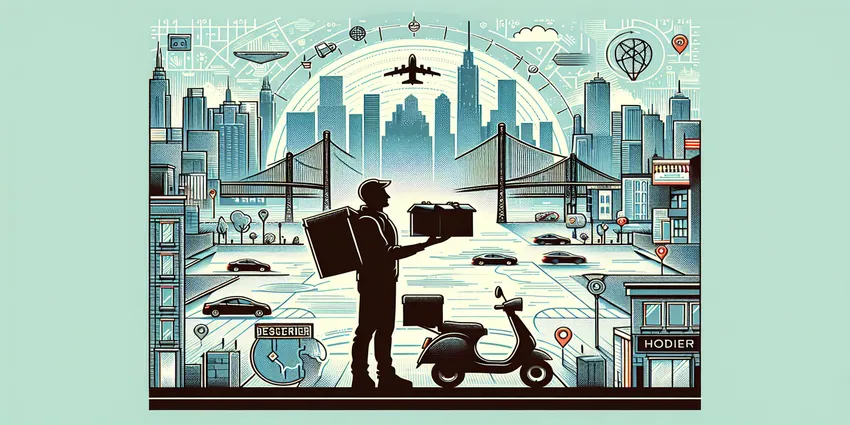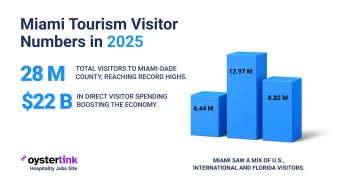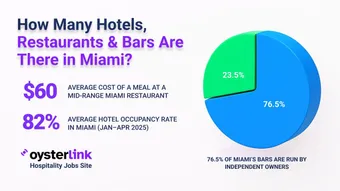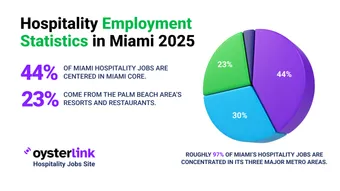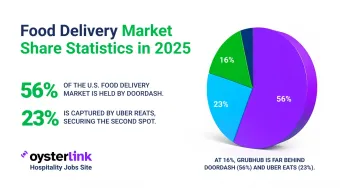How to Become a Food Delivery Driver Without Experience: Key Takeaways
- Most food delivery companies require drivers to be 18+ with a valid driver’s license and a reliable vehicle or bike.
- Popular platforms like DoorDash, Uber Eats, and MealShift hire drivers without prior experience and offer flexible scheduling.
- Applicants must provide documentation such as a driver’s license, vehicle insurance, and pass a background check.
Starting as a food delivery driver without experience is entirely achievable. This article outlines the essential steps to begin this flexible and accessible gig.
Whether you have a car, bike, or scooter, you can learn how to get on-board quickly and start earning.
For employers looking to recruit dependable drivers, check out restaurant staff hiring strategies to build a reliable delivery team.
1. Understanding Basic Requirements to Become a Food Delivery Driver
Before applying, it's important to meet the foundational requirements most food delivery services expect.
Age and Licensing Requirements
Typically, drivers must be at least 18 years old and hold a valid state driver’s license.
For example, DoorDash requires drivers to be 18 or older and have an active driver’s license number during registration.
Employers can also learn about age requirements for hospitality roles to better set their hiring criteria.
Vehicle Options for Delivery
Your mode of transportation can vary depending on the company and area.
Many platforms allow delivery via car, scooter, or bicycle. DoorDash and Uber Eats both permit a range of vehicle types.
Smartphone Necessity
A reliable smartphone equipped with GPS is essential to receive orders, navigate routes, and communicate with customers.
2. Selecting the Right Food Delivery Platform for You
Choosing a delivery platform that suits your vehicle type and availability is key for a successful start.
Several platforms welcome drivers with no previous experience.
DoorDash Delivery Opportunities
DoorDash offers flexible scheduling, enabling drivers to choose when they work. It also accepts various transportation modes including cars, bikes, and scooters, making it accessible.
For businesses, effective job posting strategies can maximize the reach of your delivery driver job listings.
Uber Eats Advantages for New Drivers
Uber Eats also accepts multiple transportation types and provides an easy entry point for inexperienced drivers.
MealShift Flexible Delivery Roles
MealShift lets drivers work by shifts or pick up individual orders, helping those seeking more control over their schedules.
3. Gathering Required Documentation for Food Delivery Jobs
Ensure you have the necessary paperwork ready before applying.
Driver License Proof
Verify your driver’s license is current and valid in your state to qualify.
Vehicle Insurance Requirements
Companies generally require you to have valid insurance on your vehicle for liability purposes; check your policy and update if needed.
Background Checks
Safety protocols mean nearly all services conduct background checks for criminal history and driving records. Consent and preparation are essential.
Employers looking to understand the importance of thorough screening should review background check policies for hospitality roles.
4. Applying and Completing Onboarding as a Food Delivery Driver
Once requirements are met, you can submit your application online and prepare for onboarding.
Online Application Process
Visit the company’s website or download their app to start your application. This often includes submitting documents and consenting to background checks.
Training and Orientation
Some platforms offer brief sessions or materials to teach drivers how to accept orders, use the app, and interact with customers.
Acquiring Delivery Equipment
Items like insulated delivery bags may be required to keep food warm and fresh. Some companies supply these or offer them at a discount.
5. Starting Your Food Delivery Career
With onboarding complete, you can begin accepting deliveries and earning money.
Setting Your Availability
Flexible hours let you choose when to work, allowing you to maximize your schedule around other commitments.
Navigating Efficiently
Use GPS and route planning tools to find the fastest ways to deliver orders and pile up more trips.
Maintaining Customer Service Standards
Being punctual, polite, and careful with orders ensures positive reviews and higher tips, boosting your earnings.
New drivers can improve with tips on managing customer service as a server, relevant for improving client interaction skills.
Additional Tips for New Food Delivery Drivers
- Maintain good physical fitness, especially if delivering by bike, to handle long hours and challenging routes.
- Practice excellent time management to reduce delays and increase the number of deliveries completed.
- Wear appropriate safety gear like helmets or reflective clothing if working on a bicycle or scooter.
Legal and Government Resources for Food Delivery Drivers
- U.S. Department of Labor - Fair Labor Standards Act (FLSA)
- U.S. Department of Transportation
- Federal Motor Carrier Safety Administration
- Occupational Safety and Health Administration (OSHA)
- National Highway Traffic Safety Administration (NHTSA)
Employers and drivers alike should understand legal obligations, including the multi-state payroll considerations for delivery workers operating across regions.
How to Become a Food Delivery Driver Without Experience: Conclusion
Becoming a food delivery driver without prior experience is straightforward and accessible.
By meeting basic age, licensing, and equipment requirements, choosing the right platform, and following a simple onboarding process, you can enter this flexible gig economy role quickly.
Focusing on navigation, customer service, and safety will help you succeed and grow your income over time.
To further explore this career path, candidates can review the Food Delivery Driver career overview and prepare with the interview questions designed specifically for this role.
For employers, understanding the food delivery driver job description helps in crafting clear job postings and expectations.
